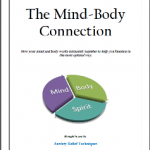Symptoms and Treatments of Postpartum Depression
Having a baby is one of the most joyous things that can happen in a woman’s life – at least, this is the typical perception of childbirth. However, for some women who are going through postpartum depression, happiness is the furthest thing that they are feeling shortly after giving birth. It hasn’t been easy for the public to accept postpartum disorder as a mental health disorder.

In fact, there are still a lot of people these days who don’t believe that this is a disorder at all, believing instead that it is the mother’s irresponsibility that is causing the problem.
However, it has already been proven that postpartum depression is indeed a disorder, and one that is actually quite serious.
Statistics show that as many as 5% to 25% of women may have these feelings of depression. If left untreated, it can be dangerous for both the mother and the new baby. During pregnancy, a woman experiences fluctuations in her hormone levels and this is said to be the main cause.
Oftentimes, postpartum depression sets in shortly after the woman has given birth. Some of the most common symptoms of this difficult condition include the refusal of taking responsibility for the newborn, a complete lack of interest in the child and being irritated upon hearing the baby cry.
Symptoms of Postpartum Depression
Some of the symptoms include sadness and fatigue, reduced libido and anxiety. In addition to these, following are more symptoms of the condition:
- Sleeping disorders and change in eating habits
- Failure to care for the baby
- Constant feelings of misery and irritability.
It is quite interesting to note that even the women who experience severe cases of postpartum depression show absolutely no signs of problems during the nine months of their pregnancy. In fact, these women may even be very happy with their pregnancy, only to end up feeling miserable and even suicidal soon after childbirth.
Not many people may want to talk about it but the dangers are very real and should be brought to public knowledge. There have been cases where new mothers suffering from this condition have dealt physical injuries to their own babies, albeit without intending to do so. Many of them claim to have no awareness of what they are doing, which makes it all the more dangerous for the baby, as well as other children in the house.
Treatments of Postpartum Depression
It is for these reasons that postpartum depression should really be treated as soon as possible. It is not the mother’s fault if she is going through this problem but it is her responsibility to herself and her children to seek help right away if she realizes she has a problem.
There are many possible ways to help someone with this disorder, and your doctor will discuss options. However, the most effective, natural way, is to show the new mother a lot of support.
Don’t let them feel they are alone and without help. Be there for them.
Affiliate Disclosure
My website contains affiliate links, which means if you purchase any products mentioned in my articles, I may receive a commission. If you do, thank you!






Excellent post, thanks, and very timely. I will email it to someone who will find it relevant right now.
Thank you Joy…and thank you for visiting!